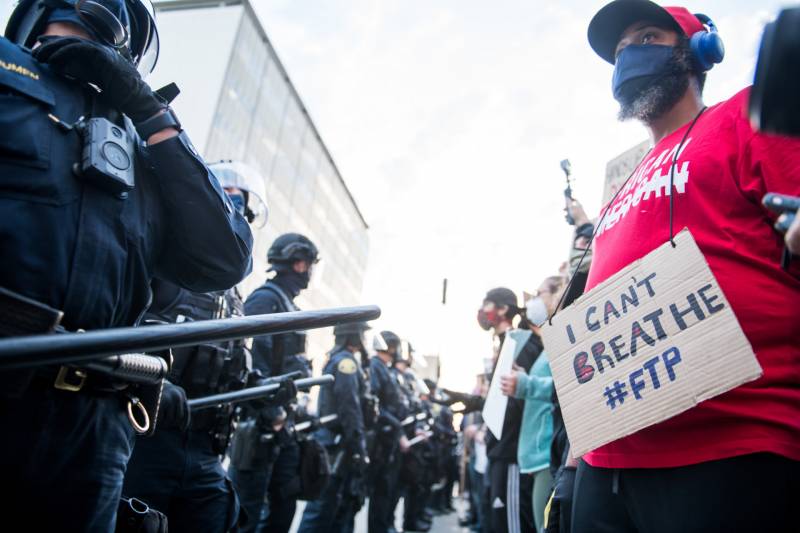The settlement restricts the sheriff’s department's use of impact munitions and flash-bang grenades to situations where it’s necessary to defend against the threat to life or serious bodily injury or to bring a dangerous and unlawful situation under control, she added.
It also bans the use of shotgun-fired munitions by both the Oakland Police Department and the Alameda County Sheriff's Office, and all restrictions apply not only to political demonstrations but any type of crowd event in the county, Laderman said.
Attorneys for the city of Oakland and Alameda County did not immediately respond to emails seeking comment.
The use of tear gas, pepper balls, lead-filled beanbags, flash-bangs, smoke bombs and other less-lethal weapons became a flashpoint in the debate over policing in 2020 after dozens of incidents throughout the country of protesters being struck by projectiles or caught up in clouds of tear gas unleashed on mostly peaceful crowds.
In February, the Police Executive Research Forum, an organization dedicated to improving the professionalism of policing, said in a report the federal government should create guidelines on the use of less-lethal weapons by law enforcement.
In the lawsuit filed against Oakland and Alameda County, Sears and Brown said officers and deputies began tear-gassing the demonstrators without warning.
“Nothing will erase the emotional pain and terror I felt on June 1, 2020,” Sears said in a statement released by Laderman. “I grew up with family members who were police officers, including my grandfather ... but I just don’t feel safe around police as a Black man. I’m hoping this settlement is a small part of achieving some real change.”
Sears and Brown will share $250,000 as part of the settlement.
KQED's Adhiti Bandlamudi contributed reporting.
